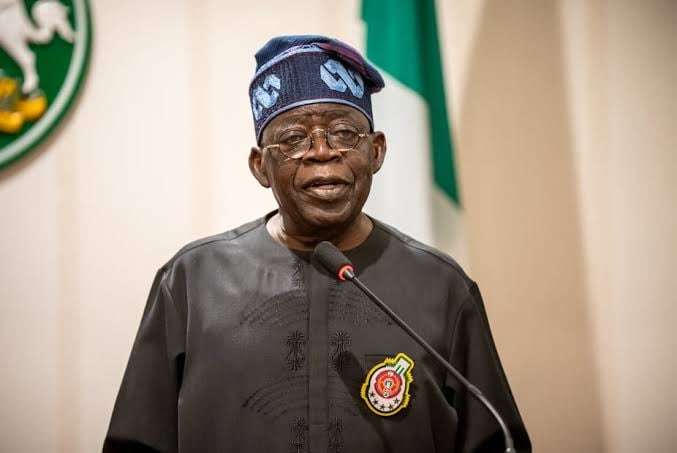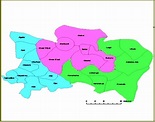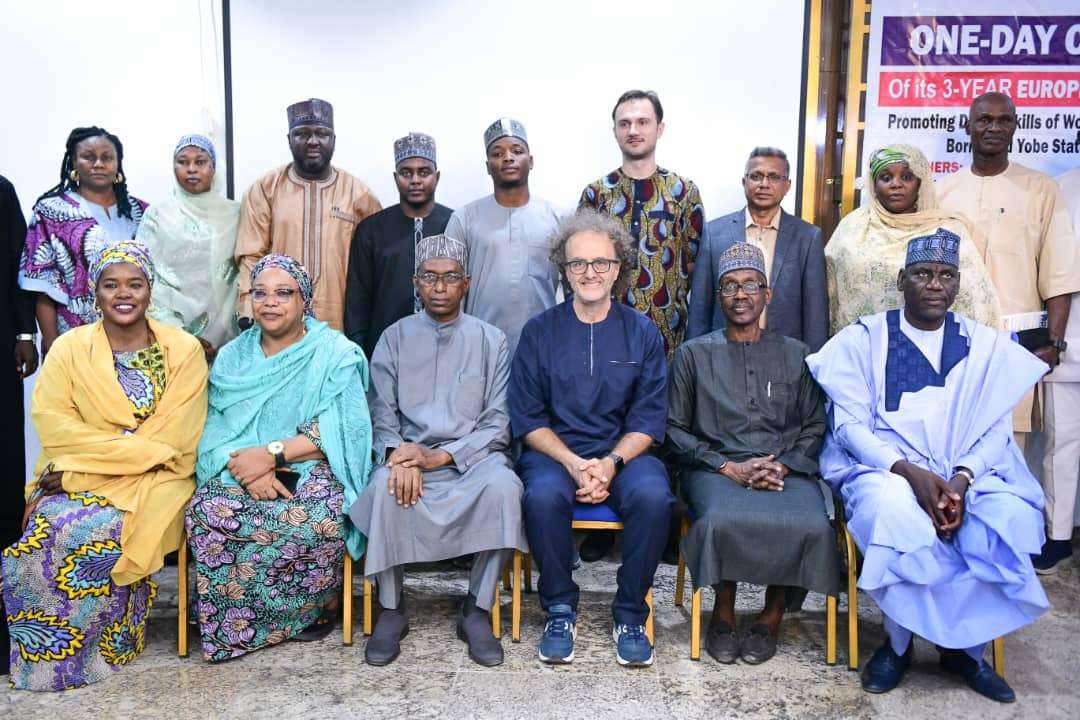By Emman Usman Shehu
In sweltering markets across Nigeria, where hawkers weave through gridlocked traffic like threads in a fraying tapestry, the tax collector is less a figure of authority than a ghost in the machine—a spectral enforcer whose knock at the door inspires not compliance, but cunning evasion. For decades, Nigeria’s tax regime has operated on this shadow economy of distrust, a labyrinth of loopholes and bribes that drains the nation’s coffers even as it pretends to fill them. Last year alone, the federal government collected a paltry 4.5% of GDP in taxes, one of the lowest rates in Africa, leaving a yawning deficit that fuels debt spirals and deferred dreams. Enter the new Tax Administration Bill, a legislative behemoth slated for rollout in 2026, promising to plug these leaks with digital tracking, automated audits, and penalties sharp enough to draw blood. Proponents hail it as a modernizing miracle; critics, including a restless cadre of Gen Z activists, see it as the final straw in a camel’s back already bowed by betrayal.
The bill arrives amid a global tempest of youth-led revolts—from Kenya’s streets ablaze over tax hikes to Bangladesh’s student uprisings toppling a regime rotten with graft. In Nigeria, the echoes are deafening: #EndBadGovernance protests that morphed from hashtags to barricades, where young voices chant not just for jobs, but for justice. These are not mere tantrums; they are reckonings, harbingers of a generation unwilling to subsidize a state that squanders their sweat. As the bill’s ink dries, the question hangs like Lagos smog: Will Nigeria tax its way to prosperity, or revolt its way to ruin? The answer, trenchantly, is neither. The path forward demands a radical pivot—not from coercion to catastrophe, but from distrust to a voluntary compact forged in transparency and tangible results. Nigeria’s salvation lies not in multiplying taxes, but in multiplying trust.
This is no flight of fancy. History whispers warnings and wonders alike. Consider Sweden, that Nordic paragon of public probity, where tax compliance hovers near 95% not because of draconian enforcement, but because citizens witness their levies reborn as gleaming schools and universal healthcare. Or Rwanda, Africa’s quiet overachiever, which clawed from genocide’s ashes to a 16% tax-to-GDP ratio through e-filing portals that demystify the process and village-level audits that humanize it. These nations didn’t bully their people into paying up; they earned it, brick by bureaucratic brick. Nigeria, with its oil-soaked patrimony and 220 million souls brimming with ingenuity—from Nollywood’s global dazzle to the fintech unicorns sprouting in Yaba’s tech hub—possesses the raw ore for such alchemy. Yet it remains shackled by a governance model that treats taxation as extraction, not exchange.
The rot runs deep, etched in scandals that read like a satirist’s fever dream. The $20 billion in unremitted oil revenues under Goodluck Jonathan’s watch; the billions vanished into the maw of the 2016 budget padding affair; the recent fuel subsidy scam that siphoned N4.3 trillion while queues snaked for days at petrol stations. Each episode erodes the social contract, turning the taxman into a thief in uniform. Small wonder that only 40 million Nigerians—barely 20% of adults—are formally registered taxpayers, and even fewer pay on time. Informal traders, who fuel 60% of the economy, view officialdom as a vampire state, sucking blood without a vein of reciprocity. “Why pay into a black hole?” one Abuja vendor confided to me last month, his stall a riot of knockoff sneakers. “They build mansions in Abuja while my road floods every rain.”
The new bill, for all its tech-forward sheen—blockchain ledgers! AI-driven assessments!—ignores this visceral truth. It doubles down on the stick, introducing fines up to 300% of evaded sums and jail terms for “willful default.” Digitization is no panacea if the dashboard points to a dashboard of corruption. Recall the Integrated Payroll and Personnel Information System (IPPIS), Nigeria’s vaunted anti-ghost-worker tool, which saved billions but couldn’t stanch the leaks from padded rosters or political patronage. Or the Treasury Single Account, meant to consolidate funds but routinely bypassed by wayward ministries. Without parallel reforms—judicial independence, whistleblower protections, open-budget portals—the bill risks boomeranging into backlash. Gen Z, schooled on TikTok timelines of global inequities, won’t march for spreadsheets; they’ll burn for betrayal.
Yet herein lies the opportunity, sharp as a panga blade: to reimagine taxation as a covenant, not a confiscation. Voluntary compliance isn’t utopian fluff; it’s pragmatic firepower. Behavioral economists like Dan Ariely have shown that trust multipliers—simple nudges like pre-filled returns or public dashboards tracking fund flows—can boost collection rates by 20% or more. In Nigeria, this could mean leapfrogging from penury to parity, swelling revenues enough to fund the $100 billion annual infrastructure gap without hiking rates that already strangle the middle class. Imagine: a Lagos where potholes vanish because taxpayers see their naira resurfacing roads, not lining generals’ pockets.
The blueprint begins with political will, that rarest of Nigerian exports. President Bola Tinubu, whose 2023 victory rode waves of reformist rhetoric, must lead not with edicts, but with exemplars. Start small, but symbolic: Publish executive salary breakdowns, down to the last kobo, and tie ministerial bonuses to verifiable service delivery metrics. Enlist civil society watchdogs—groups like BudgIT, which already unmasks budget black holes—to co-design the bill’s implementation. Digitize not just collection, but accountability: A national app where citizens scan QR codes on projects to trace funding trails, turning passive payers into active overseers.
Communications, too, must evolve from hectoring to honesty. Forget the billboards blaring “Pay Your Taxes—Build the Nation.” They ring hollow when schools crumble and hospitals hemorrhage. Instead, craft narratives of reciprocity: Stories of the Enugu trader whose VAT funded her daughter’s free school meals; the Kano farmer whose property tax paved his village clinic. Leverage Nigeria’s storytelling muscle—podcasts, Afrobeats anthems, even Nollywood shorts—to humanize the abstract. And court the youth: Gen Z, with their 70% unemployment scar and 80% smartphone penetration, craves co-creation. Hackathons for tax app prototypes; TikTok challenges decoding fiscal myths. Make them architects, not adversaries.
Sustained reform demands structural steel. Overhaul the Federal Inland Revenue Service (FIRS), bloating with 8,000 staff yet yielding peanuts, into a lean, tech-savvy force trained in empathy as much as enforcement. Regionalize collection, empowering states like Lagos (already at 0.7% of GDP) to tailor incentives—tax holidays for green startups, rebates for digital filers. And embed equity: Progressive brackets that spare the subsistence farmer while scaling with the tycoon’s turnover. Above all, prosecute the powerful. No more selective amnesties for oligarchs; let the EFCC’s net snag the elite, proving the law’s jaws bite hardest at the top.
The challenges are formidable, etched in Nigeria’s federalist fault lines and ethnic fractals. Northern states, agrarian and aid-dependent, bristle at federal overreach; southern powerhouses decry resource curses that funnel oil wealth north while taxing their ports dry. Corruption’s tentacles, meanwhile, coil through every layer, from the petty bribe at the checkpoint to the grand larceny in the senate. Global headwinds—climate shocks scorching the Sahel, commodity slumps gutting exports—add urgency’s whip. Yet history favors the audacious. Think of Lee Kuan Yew’s Singapore, transforming a swampy entrepôt into an Asian tiger through ruthless transparency, or Estonia’s e-governance revolution, where 99% of services are digital and trust in institutions soars.
Nigeria’s human capital is its Excalibur. With the world’s seventh-largest youth cohort—70 million under 30—poised to drive the Fourth Industrial Revolution, the stakes transcend spreadsheets. Untapped, this demographic dividend becomes a bomb; harnessed, a boom. Voluntary taxation could unlock it: Funding vocational hubs in Aba’s artisan alleys, coding bootcamps in Ibadan’s ivory towers, solar grids lighting rural nights. The alternative? A boomerang of revolt, as seen in Sri Lanka’s 2022 implosion, where tax hikes atop mistrust ignited fuel riots and regime collapse. Nigeria’s Gen Z, battle-hardened by #EndSARS and emboldened by Arab Spring echoes, won’t wait politely.
In the end, the question is stark: Do Nigerians crave a future taxed into submission by a government they scorn, or one funded by faith in a state that serves? The choice is obvious, but execution elusive. It demands a governance of tomorrow: Transparent ledgers audited in real time; accountable leaders judged by outcomes, not oratory; digitally enabled services that make bureaucracy a bygone relic. Taxation becomes not a tollbooth, but a tollbridge—to schools where ambition ignites, clinics where hope heals, roads where commerce surges.
This is the Nigeria we could become: A giant not just in name, but in nerve. A nation where the tax form is a ballot for belief, cast with pride, not peril. Where prosperity blooms not from compelled coffers, but from communal conviction. The new regime kicks in come January, a fork in the delta. Seize the trust imperative, and watch a generation tax with purpose, grow with gusto, deliver on dividends long deferred. Squander it, and inherit a silence louder than screams—a system that taxed hopes into husks, leaving only echoes in the empty markets.
The hour is late, but not lethal. Forewarned is forearmed. Let Nigeria choose reckoning over ruin. The prosperity it deserves awaits, not in ledgers locked away, but in the light of lives lifted.
Dr Shehu is an Abuja-based writer, activist and educator.








